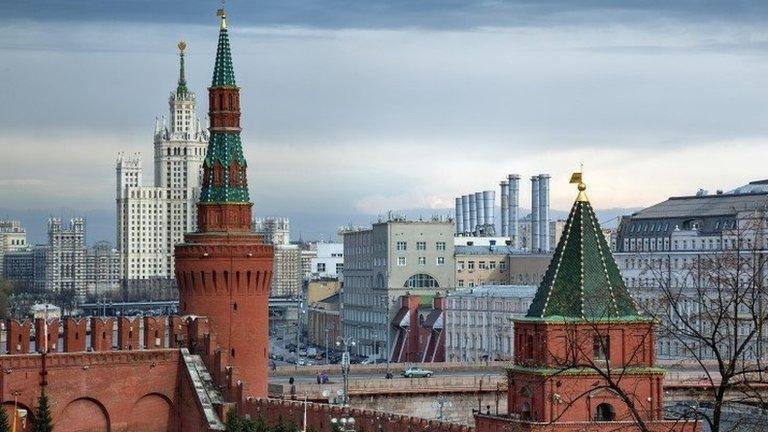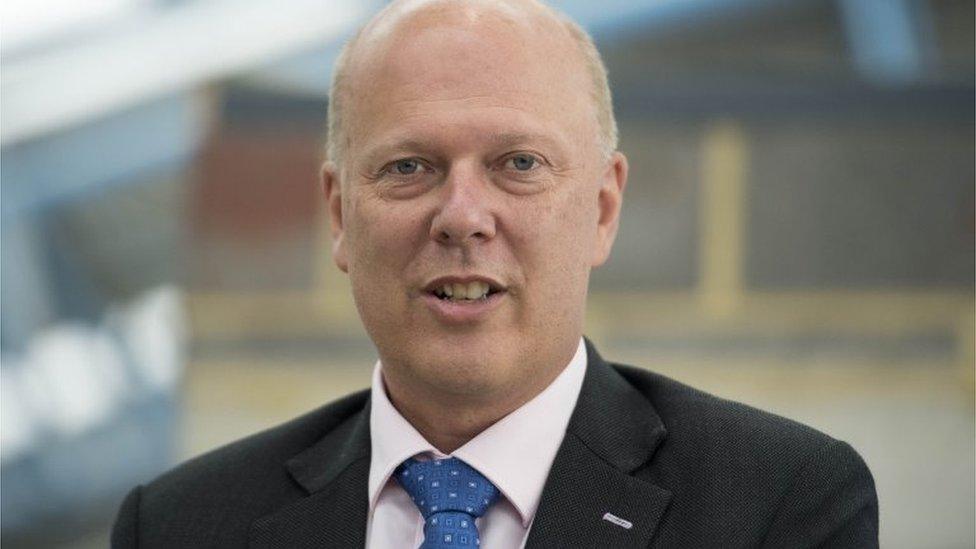Russia 'interference' report to be published
- Published

The committee is looking into Moscow's alleged influence on UK votes
A long-awaited report into alleged Russian interference in the 2017 general election and the 2016 Brexit vote is to be published next week.
The Intelligence and Security Committee voted unanimously for it to be released before Parliament's summer break.
The delay in publishing the report, which was completed last year, has led to speculation that it contains details embarrassing for the Conservatives.
But the government denies that political considerations were involved.
The report is thought to look at a wide range of Russian activity - from traditional espionage to subversion - but the greatest interest is in possible interference in the 2016 and 2017 votes.
Downing Street gave clearance for publication last autumn, but it did not come out before December's general election was called - at which point the old committee's membership was disbanded.
Publication was further delayed by the replacement committee not being set up until this week.

What's in the Russia report?
By Gordon Corera, security correspondent
Espionage, subversion and influence: that's what the Russia Report is all about. How far has Russia been carrying out such activities and has enough been done to stop them?
It is not just about the traditional spy-versus-spy intelligence-gathering to steal secrets, but also Russia's use of new techniques like cyber-espionage and social media campaigns to interfere in political life.
But it is also about Russian influence, especially though money, which critics argue has seeped into public life and compromised various institutions.
The information in the report came from the intelligence agencies but also from independent experts. Some of them are believed to have painted a stark picture of a long-term failure to deter Moscow, all the way back to the weak response to the poisoning of Alexander Litvinenko with radioactive polonium in 2006.
How much detail is there and how damning is it? We are about to find out.

The decision by the nine-member ISC - which meets behind closed doors - to bring out the report follows the election of Julian Lewis as its chairman on Wednesday.
A Tory MP since 1997, he put himself forward for the role, apparently against the wishes of Downing Street, which had preferred former cabinet minister Chris Grayling for the job.
The three Labour members and one SNP member of the committee supported Mr Lewis, who, immediately after being named chairman, was expelled from the Conservative Parliamentary Party.

Chris Grayling had been the PM's preferred choice for committee chair
But in a statement, Mr Lewis said the 2013 Justice and Security Act had "explicitly removed the right of the prime minister to choose the ISC chairman and gave it to the committee members".
He added: "It was only yesterday afternoon [Thursday] that I received a text asking me to confirm that I would be voting for the prime minister's preferred candidate for the ISC chair.
"I did not reply as I considered it an improper request. At no earlier stage did I give any undertaking to vote for any particular candidate."
Mr Lewis also said the government had denied wanting to "parachute" a preferred candidate in to the chair, adding:"It is therefore strange to have the whip removed for failing to vote for the government's preferred candidate."
But House of Commons Leader Jacob Rees-Mogg accused him of of "playing ducks and drakes with the Labour Party" and said that was why he had had the Conservative whip withdrawn.
However, Conservative MP Peter Bone said Mr Lewis was "exceptionally well-qualified" to become chairman and "would do and excellent job", while some in Downing Street had had a "huge hissy-fit".
And Labour leader Sir Keir Starmer said it was a "good thing" the committee had chosen Mr Lewis.
He added: "They obviously chose to reject the imposition by the prime minister of his preferred chair on them…They're an independent committee and we should respect the decision they came to."